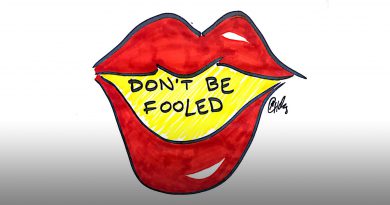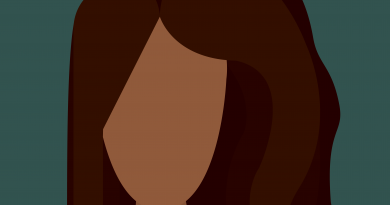The Natural Look Is The Best Look
Women of color have always faced adversities, especially when it comes to our hair. Though this is a challenge that consumes many women’s lives, natural hair is making a comeback that is stronger than ever.
When Africans were brought to the New World as slaves, their heritage was diminished. Consequently, adapting to European customs was needed in order to survive. Our dark skins, broad features, like wider noses and lips, and kinkier hair, were seen as no match for the straighter, smaller features and lighter skins of the Europeans.
Undeniably, this inflicted a deadly form of self-hate which was innately put into the offspring of the African generation for centuries. This costs us the important aspect that makes up any person, any heritage, and any culture. This identity crisis has shown itself through the process of manipulating our hair textures and altering its natural state with hazardous chemicals, which have proven to be dangerous and life-threatening to our health.
Still, from the late 1800s to the early 1900s, many Blacks believed that harsh hair chemicals were essential to obtaining good paying jobs by white employers. Besides chemicals, Blacks also parted and straightened their hairs in order to mimic white coiffures. This was seen as normal amongst the Black community. This kind of self-abandonment was needed for survival.
But then, influential pioneers, like Madam C.J. Walker, revolutionized black hair care and created products that positively helped women of color everywhere.
Yes, the 40s and 50s had famous Black entertainers, such as Dorothy Dandridge and James Brown, who doused their hair with creamy crack to please White Hollywood. But something earth shatteringly beautiful began breaking through in the 60s.
The “Afro” made its grand debut, and the uplifting concept “Black is Beautiful” changed what it meant to be Black. Or did it just bring it back?
In the new millennium, it has certainly shown through countless inspiring artists like Erykah Badu, Janelle Monae, India.Arie, Haitian painter Jean Michel Basquiat and Augusta Savage that redeeming ourselves and claiming our rights to be is becoming direly vital and urgent in this culture.
You even have amazing foundations like Black Girls Rock, a non-profit organization that seeks to build the self-esteem and self-worth of young women of color by changing their outlook on life and empowering them.
Women of color have always been told that our beauty is comparable to nothing. Many of us have learned to hate the very essence of our genetic makeup, skin, hair, lips, and bodies, all for the sake of wanting to look beautiful, be beautiful, and worthy of love.
Carley St. Hubert, a 20-year-old education major at Wolfson Campus, who has used both texturizers and perms, but has gone natural for the past six years, said: “You can’t be European and African at the same time. It’s just not going to happen.”
Though many Blacks have embraced their true beauty, there are still a large number of Black women who still rely on European, Malaysian or Indian hair in order to get the kind of gratification that comes only from within.
Nathalie Momplaisir, a 17-year-old biology major studying to become a pediatrician at North Campus, feels as though not accepting your natural hair possesses a deeper meaning that suggests a lack of confidence in oneself: “I have been natural my whole life, so I find dealing with my hair easy, but for those just getting into natural hair, just be patient. Learning about your hair takes time. You’ve got to adapt and become comfortable with it.”
A lot of factors, such as time, management, cost, and other issues, affect the willingness of many women wanting to transition or just become natural, but those factors, at the end of the day, should be worth it.Having older women embracing this part of themselves will encourage the younger generations to come to accept this of themselves too, regardless of what texture or length your hair may be.
Being Black comes in many wonderful shades, ethnicities, and colors. But in the end, we are all one, and we are all beautiful, just the way we are.




